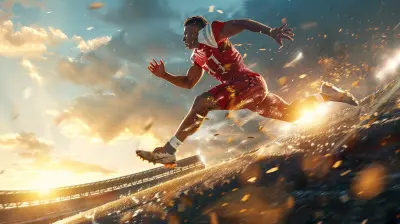Breaking Barriers: Olympic Athletes Who Made History
20 October 2025
The Olympics aren’t just about gold medals and world records. Behind every event, every performance, there's a story — a story of grit, determination, and yes, breaking barriers. Some athletes didn’t just rewrite the record books — they rewrote history. They challenged stereotypes, broke social norms, and transformed the Olympics into more than just a sports event. It became a celebration of unity, courage, and resilience.
So, let’s take a walk down memory lane and look at some Olympic athletes who didn’t just compete — they changed the game entirely.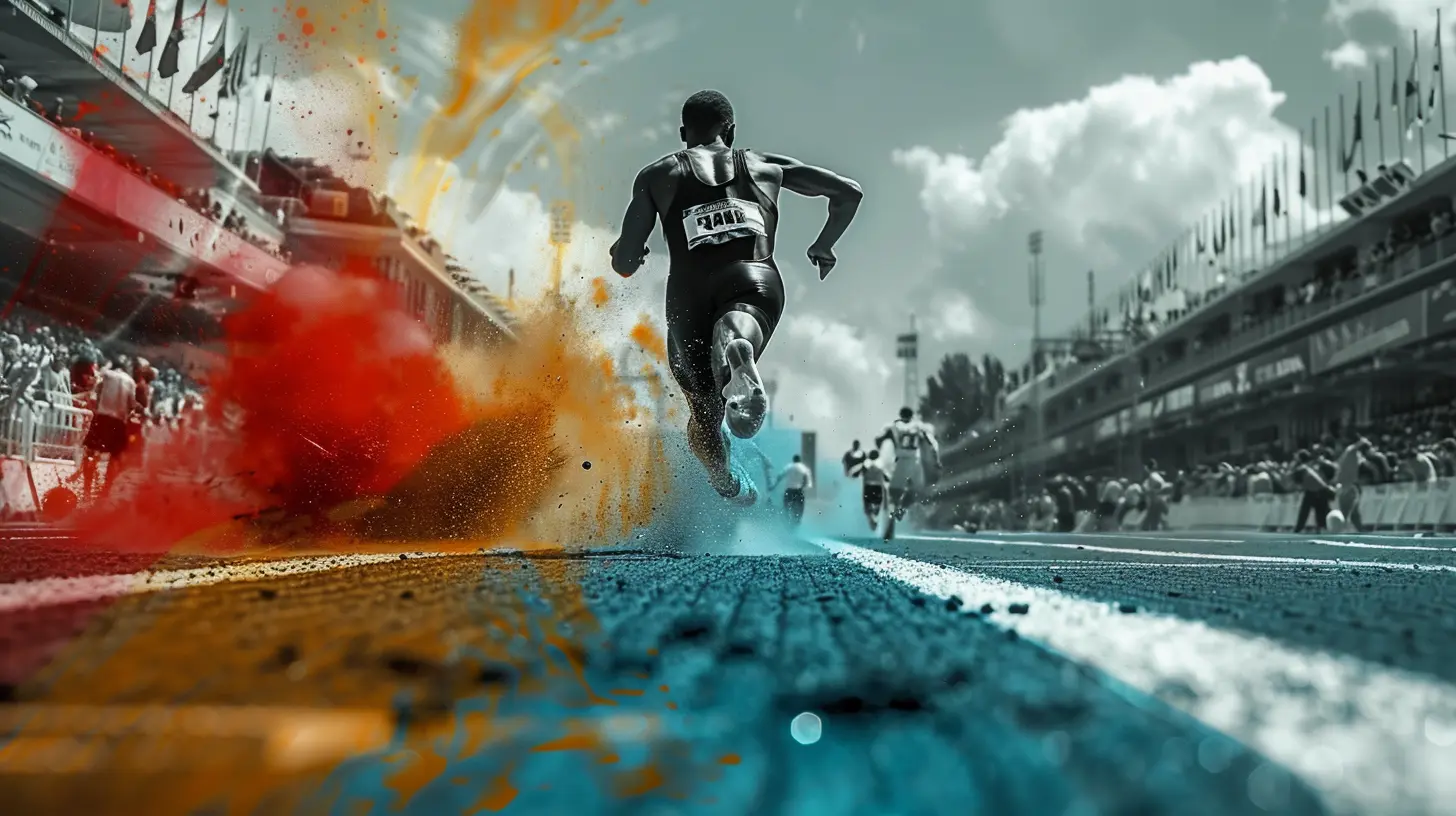
Jesse Owens: Sprinting Against Racism
Let’s kick things off with a name etched in Olympic lore — Jesse Owens.In the 1936 Berlin Olympics, a time when Adolf Hitler was promoting his twisted idea of Aryan superiority, Jesse Owens, an African-American, shattered all that nonsense in front of the whole world.
He didn’t just win one or two medals. No. He won four gold medals — in the 100 meters, 200 meters, long jump, and 4x100 relay. Owens didn’t just run races. He ran straight through racism and propaganda. Imagine the guts it took to do that in Nazi Germany.
While the world cheered, Owens returned home to a segregated America. He wasn’t even invited to the White House. But what he did in Berlin? That sparked something far bigger than sports.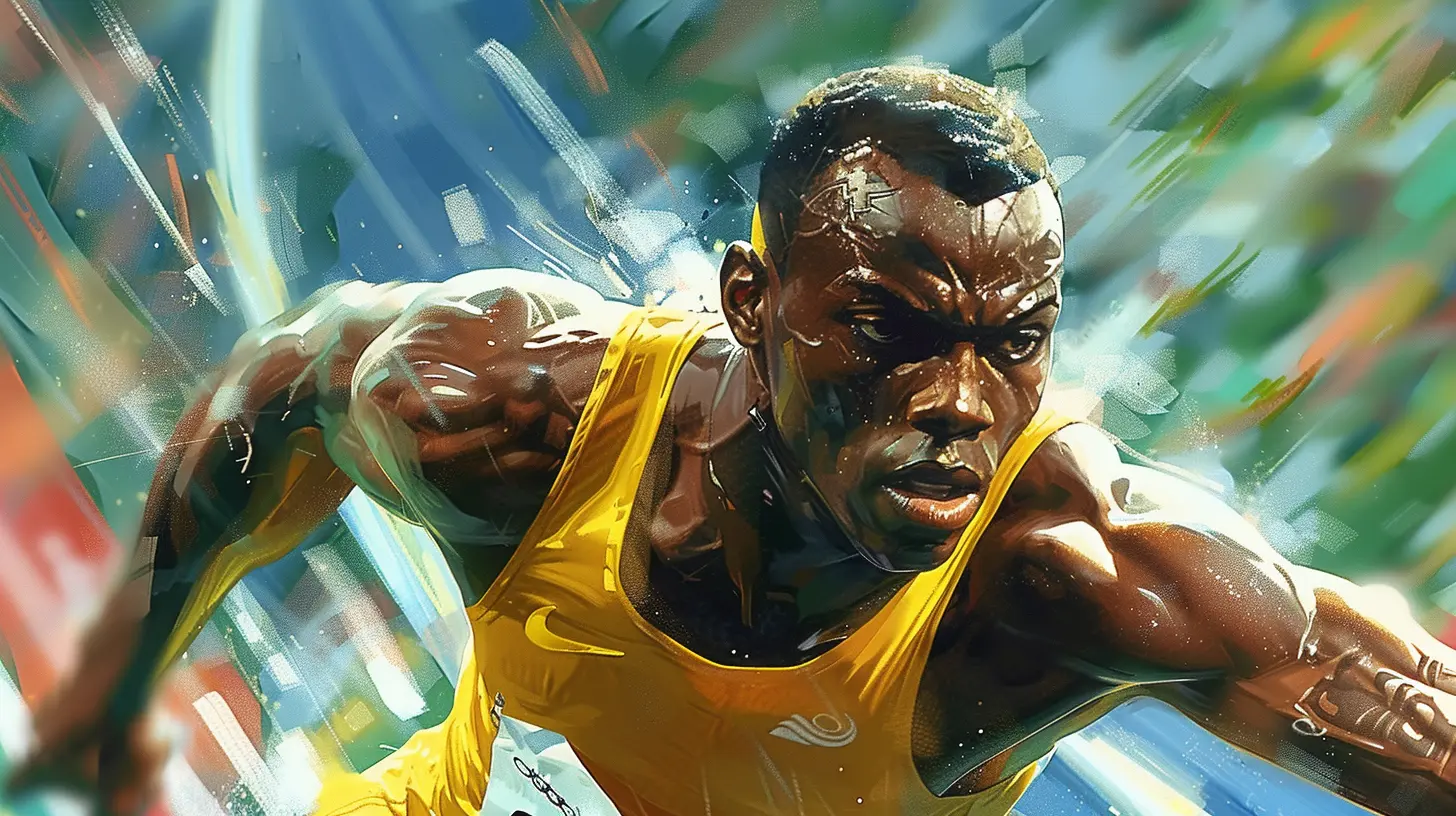
Wilma Rudolph: From Crutches to Gold
How many people can say they went from wearing leg braces as a child to becoming the fastest woman in the world? Just one — Wilma Rudolph.As a kid, she suffered from polio and was told she’d never walk again. But Wilma had other plans.
In the 1960 Rome Olympics, she won three gold medals in track and field. That's right — from polio to triple gold. Her performance made her the first American woman to win three golds in a single Olympics. Talk about resilience.
And not just that — she became a symbol of hope for African-Americans and women everywhere.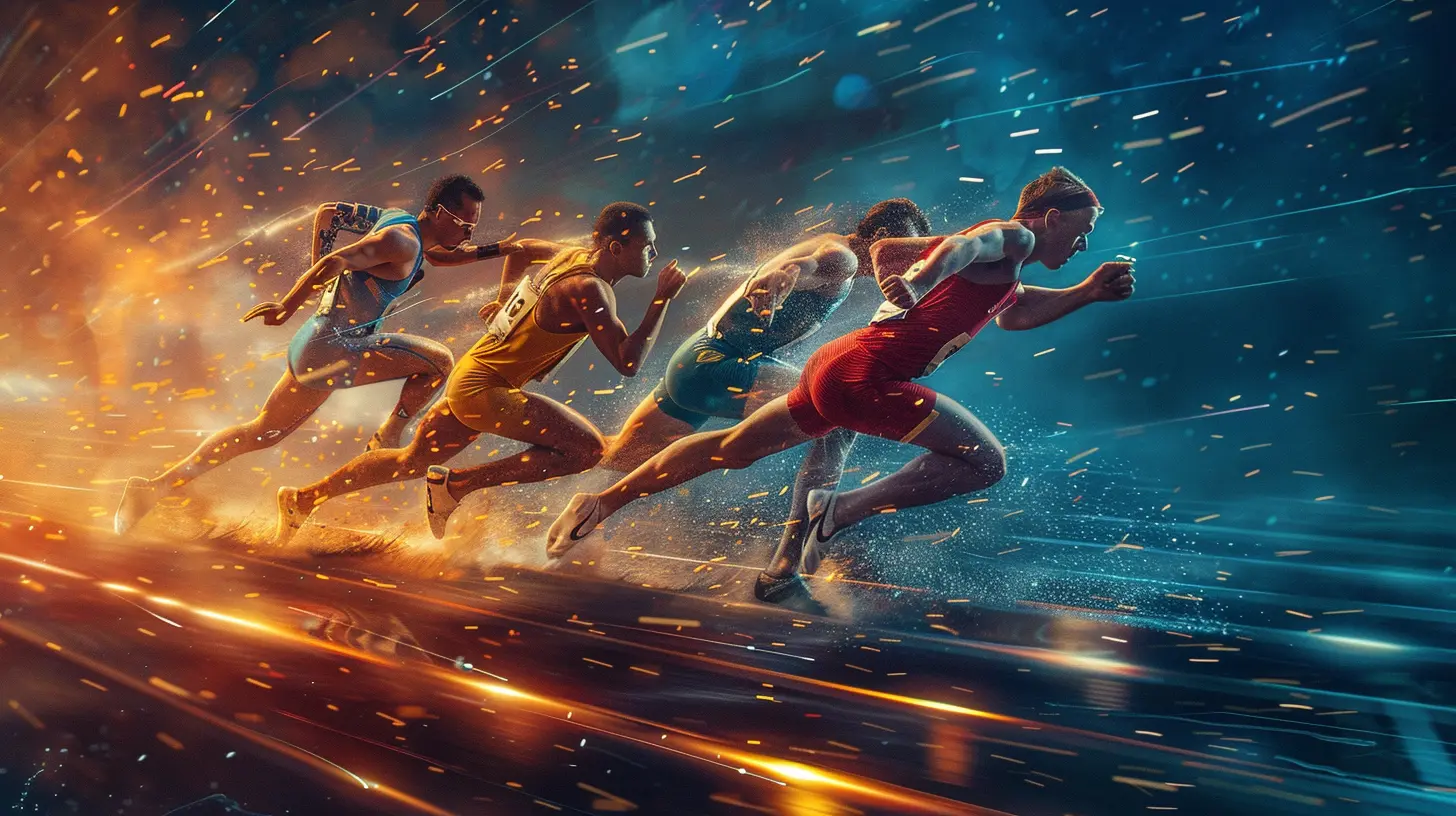
Nadia Comăneci: The Perfect 10
Gymnasts work their whole lives striving for perfection, but in 1976, a 14-year-old Romanian girl actually achieved it. Enter Nadia Comăneci.At the Montreal Olympics, Nadia scored the first perfect 10 in Olympic gymnastics history. The scoreboard wasn’t even programmed for a 10.0! It showed 1.00 instead.
She didn’t stop there. She went on to score seven perfect 10s and bagged three gold medals.
Nadia didn’t just break barriers. She redefined what was humanly possible in gymnastics. After her? The sport was never the same.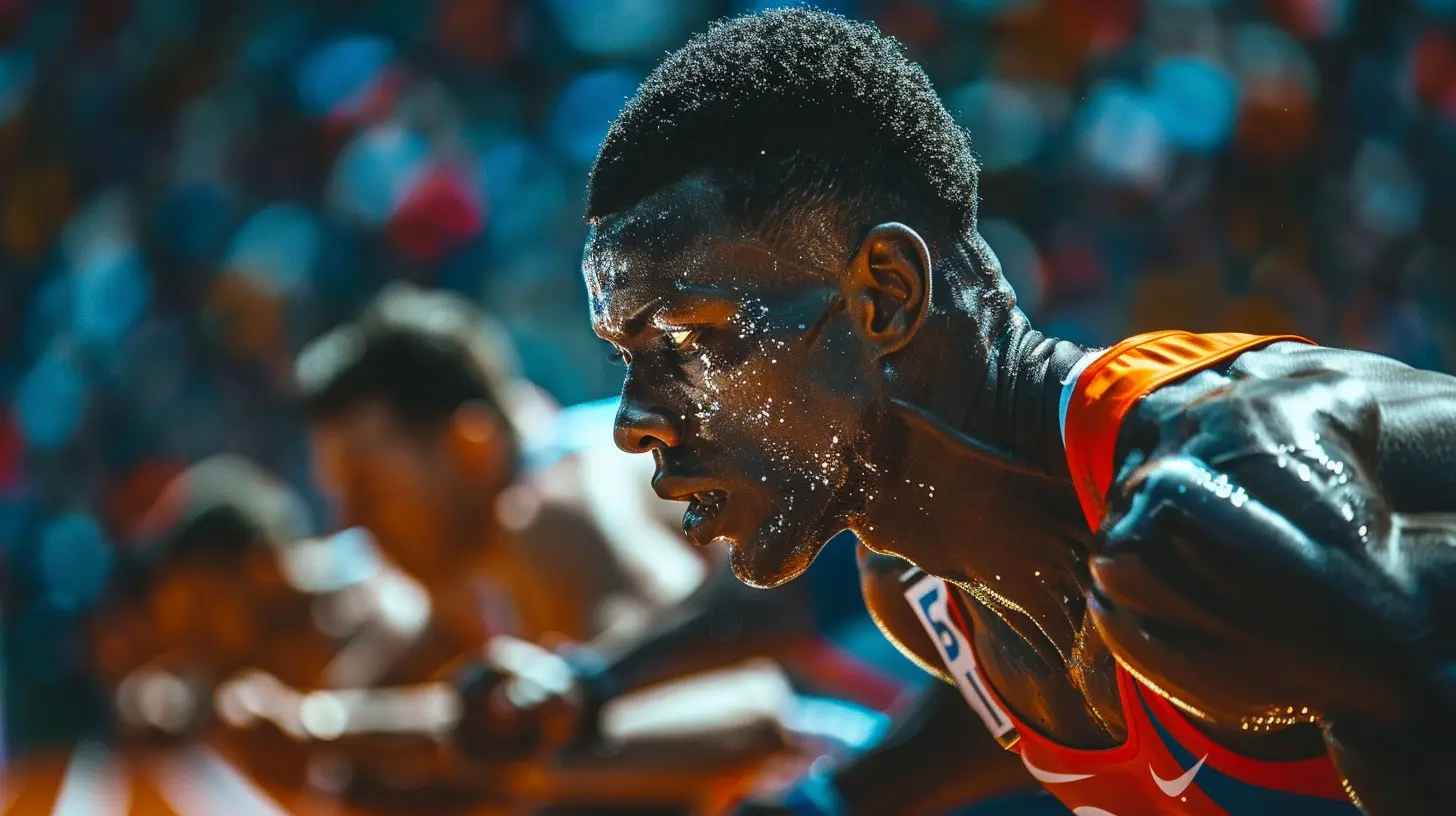
Muhammad Ali (Cassius Clay): More Than a Boxer
When Cassius Clay, later known as Muhammad Ali, stepped into the ring at the 1960 Rome Olympics, people saw a talented young boxer. What they didn’t see? A future global icon.At just 18, he won gold in the light heavyweight division. But what made Ali different was his voice. He stood up for civil rights, spoke out against war, and refused to back down — even when it cost him dearly.
Ali broke the mold of what an athlete could be. He wasn’t just a champion in the ring. He was a champion in life.
Cathy Freeman: Running for Reconciliation
In the 2000 Sydney Olympics, all eyes were on Cathy Freeman. Why? Because she wasn’t just running for herself — she was running for an entire nation.Freeman, an Indigenous Australian, lit the Olympic flame and later won gold in the 400 meters, draped in both the Australian and Aboriginal flags. It was a powerful moment of unity in a country with a complex and painful history.
Cathy didn’t just win a race. She helped bring people together and sparked national conversations about reconciliation.
Tommie Smith & John Carlos: A Silent Statement Heard Around the World
1968. Mexico City. The medal ceremony for the 200-meter sprint.Tommie Smith had just won gold. John Carlos took bronze. As the American national anthem played, both men stood barefoot on the podium, heads bowed, fists raised in the Black Power salute.
It was one of the boldest protests in Olympic history. And it came at a cost. They were expelled from the Games and faced backlash back home.
But today? That moment stands as a landmark in the fight for civil rights. Their silent protest roared louder than a stadium of applause.
Yusra Mardini: The Swimmer Who Escaped War
Now this one will hit you right in the heart.Yusra Mardini, a swimmer from Syria, was once just like every other young Olympic hopeful. Then the war hit.
She fled her country, survived a dangerous journey across the Mediterranean — even jumped into the sea to help guide a sinking boat full of refugees to safety — and still made it to the Olympics.
In 2016, she competed in Rio as part of the first-ever Refugee Olympic Team.
She didn’t win a medal. But honestly? She didn’t need to. Just being there was a victory for every displaced person fighting to survive.
Ibtihaj Muhammad: Fencing in a Hijab
Ibtihaj Muhammad made waves at the 2016 Rio Olympics not just for her fencing skills, but for being the first American Olympian to compete in a hijab.In a time when anti-Muslim sentiment was growing, Ibtihaj stood firm. She didn’t just break barriers — she served as a symbol of pride for Muslim girls around the world dreaming of a future in sports.
Oh, and she took home a bronze medal in the team saber event. So yeah, she didn’t just show up — she slashed through expectations.
Abebe Bikila: A Marathon in Bare Feet
Let’s rewind to 1960 again for a wild one.Abebe Bikila of Ethiopia showed up to the Olympic marathon — barefoot. Why? His shoes didn’t fit right.
So he ran 26.2 miles with no shoes... and won gold. Not only did he win — he set a world record.
Four years later? He came back and won another gold, this time with shoes.
Bikila wasn’t just the first Black African to win Olympic gold — he became a legend and inspired an entire continent to dream bigger.
Simone Biles: Redefining Mental Strength
Simone Biles is arguably the greatest gymnast of all time. Her Olympic record is jaw-dropping. But what made her truly iconic? Her decision to step back for her mental health during the 2020 Tokyo Games (held in 2021).In a world that often tells athletes to “tough it out,” Simone said nope — and chose her well-being over medals.
That moment? As powerful as any flip or twist she’s ever done.
By putting mental health on the global stage, she helped break an invisible but very real barrier.
Oscar Pistorius: The Blade Runner
Before things went dark in his personal life, Oscar Pistorius made headlines for something groundbreaking — competing in the 2012 Olympics as a double amputee.Using carbon-fiber prosthetic blades, Pistorius became the first amputee to run in the Olympic Games against able-bodied athletes.
He didn’t medal, but his presence alone was a massive statement — one that changed how the world viewed disability in sports.
Larisa Latynina: Queen of Gymnastics
Before Simone Biles, before Nadia Comăneci, there was Larisa Latynina.Competing for the Soviet Union in the 1950s and 60s, she racked up 18 Olympic medals, including 9 golds — a record that stood for nearly half a century.
In a male-dominated era, Latynina proved that women could not only compete — they could dominate.
She laid the foundation for what women's gymnastics would become.
Tatyana McFadden: Racing with Wheels, Not Limits
Born in Russia with spina bifida and without use of her legs, Tatyana McFadden spent her early years in an orphanage with no wheelchair — she basically built arm strength by walking on her hands.Adopted and raised in the U.S., she became a dominant force in Paralympic track and field.
With 17 Paralympic medals under her belt and an array of marathon wins, McFadden isn’t just a champion — she's a powerhouse advocate for equality in disabled sports.
A Legacy of Courage
What’s incredible is how each of these athletes brought more than just talent to the table. They brought courage, boldness, and a deep desire to change the world around them.They weren’t just playing the game — they were flipping the board entirely.
From overcoming racism and war to redefining physical and mental limits, these Olympians turned the Games into a global platform for change.
You don’t need to be an athlete to be inspired by them. You just need to believe that barriers — no matter how big — can be broken.
The Olympic Spirit: More Than a Motto
At its core, the Olympics stand for unity, peace, and the celebration of human potential.And when we see athletes who break barriers — not just by winning, but by standing up, speaking out, or simply showing up — that’s when we witness the true spirit of the Games.
It’s not just about how fast you run, how high you jump, or how many medals you wear. It’s about how many lives you touch, how many walls you knock down, and how many people you inspire in the process.
So the next time the Olympics roll around, don’t just watch for the fastest or the strongest. Look for the ones rewriting history — because they’re the real MVPs.
all images in this post were generated using AI tools
Category:
OlympicsAuthor:

Easton Simmons
Discussion
rate this article
1 comments
Karen Rosales
This article beautifully highlights the groundbreaking achievements of Olympic athletes who transcended boundaries and redefined possibilities. Their incredible stories inspire future generations, reminding us that determination and resilience can truly change the course of history in sports. A must-read!
October 24, 2025 at 2:30 AM

Easton Simmons
Thank you for your kind words! I'm glad the article resonated with you and highlights the inspiring achievements of these remarkable athletes.


